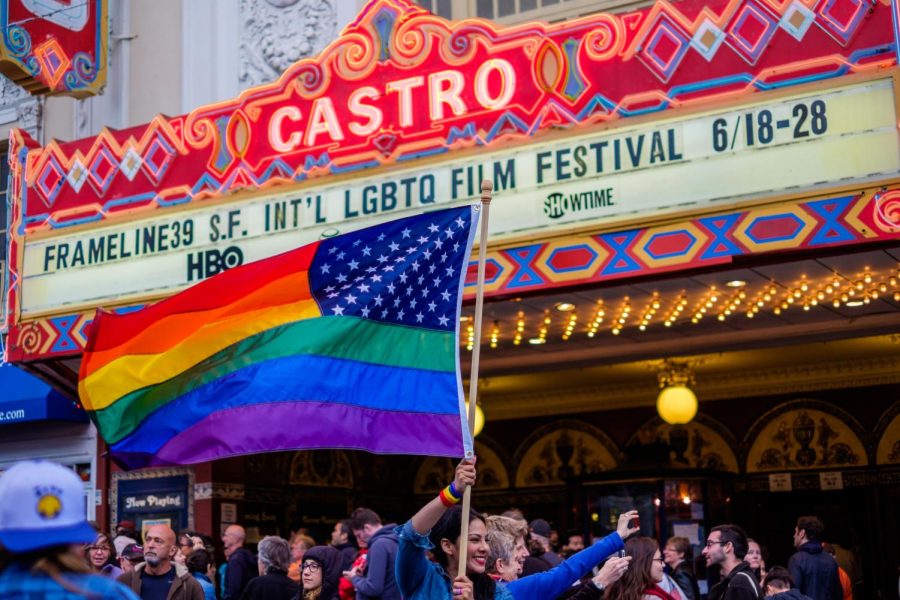LGBTQA+ Representation Matters in Media
April 22, 2022
 Media is everywhere. Specifically in shows and movies, media has a huge impact on our society because it teaches most people how to think and act. Unfortunately, one outcome of companies’ bigger influences is that it causes most media-producing companies to rethink LGBTQA+ representation in their content.
Media is everywhere. Specifically in shows and movies, media has a huge impact on our society because it teaches most people how to think and act. Unfortunately, one outcome of companies’ bigger influences is that it causes most media-producing companies to rethink LGBTQA+ representation in their content.
Why does LGBTQA+ representation matter? Seeing a queer person in media can allow a person feel included and let a person know that their identity is valid, especially in such a heteronormative society. Queer people already face oppression and invalidation, even today. Affirming and respecting someone’s identity, even if it’s fictional or through a screen, can help someone to feel seen and let them know that they don’t have to change who they are.
This issue concerning lack of representation stems from the fact that companies are aiming to create content that appeals to all their audiences, avoiding topics that they deem are “controversial”.
Disney is one of these companies. Fans of Disney shows and television have criticized the filmmaking company about a lack of queer inclusivity and erasure in what they release. There are a few shows within Disney that provide LGBTQA+ representation openly such as the popular shows Gravity Falls, Andi Mack, The Owl House, and Amphibia. However, evidence has shown that this inclusive, accepting side of Disney is not even its own doing—and is nothing more than just a facade for profit.
Disney has already been exposed in erasing queer characters, but that’s not all. The creator of Disney’s The Owl House, Dana Terrace, released several tweets in which she expressed her discontentment with Disney.
Terrace, Dana (DanaTerrace). “I’m [tired] of making Disney look good…” 7 March 2022, 11:21 a.m. Tweet.
Terrace, Dana (DanaTerrace). “Disney’s still going to send money to the sponsors of the discriminatory Don’t Say Gay bill.” 7 March 2022, 11:28 a.m. Tweet.
Florida’s “Don’t Say Gay” bill that was propsed in March is for educators to refrain from educating students about gender and sexual orientation under the belief that it is “inappropriate” for children to learn about.
One example is Disney’s Turning Red, which was released not long after Florida’s “Don’t Say Gay” bill was introduced. In backing the bill, Disney removed same-sex couple scenes in the movie and scenes containing discussions about sexuality.
While Disney isn’t supportive of queer people, it still continues to capitalize off of the representation its content features. even though the company is not supportive of it. One instance is Disney’s Rainbow Mickey Merchandise Collection, which “de-emphasized the terms like LGBTQ+.” All things considered, the company is unconcerned for the absence of queer representation as long as it is financially beneficial.
Disney’s CEO Bob Chapek also sent a message to Disney’s employees, finally mentioning Disney’s unsuccessfulness in responding to the bill. Terrace made the point that Chapek’s statement was empty, adding, “if [Disney wants] to support diverse groups and underrepresented communities then [it] also needs to denounce those that want to do those people harm.”
Even if someone is not a part of the community, queer inclusion in movies and shows can help them be respectful of everyone, including those who are different from them.
LGBTQA+ erasure is damaging to queer people because it leaves them feeling like they need to change for others who are not accepting of them. It also plays down the significance of representation for reputation and profit, and is why it’s important to refrain from capitalist companies that are only concerned about their profits. Instead, it’s better to support inclusive creators.
Queer representation not only lets people know that their identity is valid, but it also teaches people that it’s necessary to respect others. An absence or revoking of representation, however, has the opposite effect. As queer inclusivity becomes more difficult to come by, it becomes even more important.
Photo courtesy of COMMONS.WIKIMEDIA.ORG
Graphic by Caitlyn Chau


Mr. Monden • Apr 29, 2022 at 10:17 AM
Very well written article!